Two weeks ago, I had the pleasure of speaking at an end-of-year gathering of student veterans here at Syracuse University. The week leading up to this event had included some personally challenging issues for me, and for that reason the task of considering what message of value I might share with these student-veterans took a turn toward something more personal and self-reflective, a contrast to what is my traditional norm and custom (and usual comfort).
In the time since that speech, and given that a great many veterans are graduating from America’s colleges and universities this month, more than a few of the event’s attendees have reached out and encouraged me to share my words from that evening with other veterans. Those words – thoughts and self-reflections on the meaning of my own transition from military life – are (somewhat reluctantly) presented below.
By: Dr. Mike Haynie
 Good evening, and thank you all for the opportunity to celebrate with you tonight.
Good evening, and thank you all for the opportunity to celebrate with you tonight.
I’ll make one promise right from the outset of my remarks – that is, I promise not to spend too much time behind this podium. Tonight I’ll take a cue from President Roosevelt’s playbook when it comes to giving a speech. Roosevelt said the objective of good public speaking is to “be sincere, be brief, and be seated.” You have my word that I’ll be seated very soon!
As I considered what to say tonight, my initial thought was to speak about the much discussed topic of navigating the different pathways of transition from military to civilian life, as if I know something about what that means for all of you.
This is a topic I’m asked to speak about often. However, truth be told, in front of this group – in front of family – I’d feel like a phony having that conversation. I say that because any words and thoughts I’d ascribe to that issue, would imply that I know something about what that journey looks like, and how you all should proceed.
Truth be told, if I can share my own vulnerabilities, I’ll say honestly and candidly – in a way that’s NO different from many of my fellow veterans in this room – that I’m still on that journey myself.
I say that because what’s most ironic about my post-service journey, particularly given my current role at Syracuse University as Vice Chancellor for Military and Veteran Affairs, is that when I came to SU in 2006 – after 14 years of active duty military service – I was honestly and truly running away from my military-self. For my own reasons, that maybe I’ll share on another day, I was done.
I’ve said before that I decided to leave the military because I wanted to be a college professor, which on the surface is a true statement. However more deeply, I was motivated to chase something that I had once found, and then lost. Put differently, more and more I found myself grieving for what I was, before the military made me something different. Not worse, in many ways better, but certainly different than the very carefree ‘kid’ I was on the day I was commissioned.
That might be a sentiment that resonates with some of you in this room.
You see, for many people the natural process of growing-up – perceiving and internalizing a sense of responsibility and accountability for yourself and others – is something that happens gradually and incrementally over time. But it didn’t happen that way for me, just like it didn’t happen that way for many of you.
They put 2nd lieutenant rank on my shoulders when I graduated from college, and I assume at that same event someone probably gave a speech about how and why this transition from cadet to officer will change my perspective on life. I say that I assume, because I’m sure I wasn’t listening.
Truth be told, some 5 or 6 years into my military career, in my mind I was still that same college kid. I didn’t take too much, too seriously. I had no idea what I wanted to ‘be’ when I grew up, because I didn’t really understand what ‘grown-up’ meant.
Don’t get me wrong, I was proud of my service, and worked hard to do the best job I could, with whatever task the military handed me. However I didn’t take the military, as seriously as the military took itself. And then, one day, all that changed.
It was a day and an experience that even now, I remember so clearly, so emotionally – and selfishly, a day and an experience that I remember with deep regret, for reasons that make me feel intensely guilty.
It was the summer of 2001, and I had recently arrived at the U.S. Air Force Academy to begin an assignment as member of the USAFA faculty. My boss had assigned me to teach introduction to accounting, which could only be described as pure torture. However, true to form I was determined that I was going to have some fun with this, even in spite of the fact that I learned very quickly that even ‘fun’ at the Academy has a way of going bad very quickly. So, in the face of overt disdain, ridicule, contempt directed at me by some of my fellow instructors, I proceeded to design an entire semester of accounting lessons around the exploits of Bart, Lisa, Homer, and the rest of the Simpson family. The cadets loved it, but my boss, not so much. It was perfect.
My class started at 0730 each morning. Just a few weeks into the fall semester of 2001, I was in the office early to put the finishing touches on the daily balance sheet for the Springfield Quikimart – when out of the corner of my eye I caught the news playing on the TV. A civilian airliner had impacted the World Trade Center.
Word came very quickly to us that this wasn’t an accident, and I rushed down to my classroom to be with my students. I arrived to find 40 scared, angry, and confused cadets. In a way uncharacteristic for a ‘Haynie classroom,’ nobody was speaking – it was dead quiet. We sat together in silence, watching the TV, and then watching as a second plane hit the second tower. One cadet finally broke the quiet, and she said, “Captain Haynie, this is going to change everything, isn’t it?”
Without really processing what she had said, I responded “for all of you…forever.”
For me, that’s when it happened. That’s the first time I actually remember feeling like an adult. At that moment I recall perceiving, for the first time, social and psychological ‘distance’ between myself, and the 21 year-old kids I was teaching.
Importantly however, in that distance, I also found profound personal meaning – and I realized that like for them, everything would change for me as well.
I say that – and share this story tonight – because for me, it was at that moment when my transition journey began. To be clear, it would be 5 more years before I actually took off the uniform. But without a doubt, my transition started that day, in that room. It started with those kids looking at me for answers, because it was at that point that I knew what form my life’s work would take. I was going to be a teacher.
The simple point I’m trying to make – and that I’d hope you reflect on as you consider where your post-military service journey will take you – is that we’re all transitioning all the time. Life is all about the transition – from somewhere, to someone…from today, to tomorrow. That said, I think many of us spend too much time and energy getting hung-up on the notion of ‘navigating’ the transition – particularly the transition from military-to-civilian life – as if the ‘transition’ itself is an end-state to be accomplished, rather than the means to something greater and more meaningful.
What I’m suggesting is that successfully navigating’s life’s transitions – particularly the transition from military to civilian life – actually has very little to do with mapping out the ‘right’ path: who you work for today, or tomorrow…where you’ll live…what school you’ll attend…or even whether you’re still wearing a uniform. Instead what I’ve learned, not always so gracefully, is that the most successful transitions are the ones where we act based on answers to ‘why’ questions, as opposed to ‘how’ questions; that is, we’re better served when we frame life’s transitions NOT as designing a process exercise to get us from A to B, but instead as a means to ask and answer the question, does getting to B even matter? Why?
In conclusion, my wish for all of you is that you don’t avoid opportunities for transition, but instead – borrowing words and sentiment from John F. Kennedy – that you enthusiastically embrace change and transition as the “law of life,” and come to understand why “those who look only to the past or present, are certain to miss the future.” Moreover, my hope for all of you is that you spend a bit less time and energy on obsessing about what is the ‘right’ pathway along your post-service journey, so that you have a chance to actually live meaning-filled lives along the way.
You have certainly earned that opportunity. Thank you and good night.
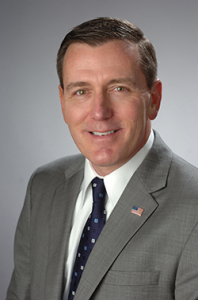 Ron Novack | jrnovack@syr.edu
Ron Novack | jrnovack@syr.edu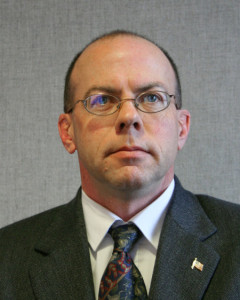 Keith Doss | veterans@syr.edu
Keith Doss | veterans@syr.edu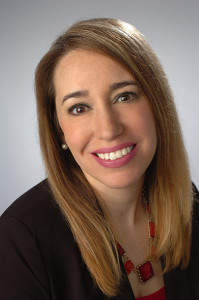 Jennifer Pluta | jrpluta@syr.edu
Jennifer Pluta | jrpluta@syr.edu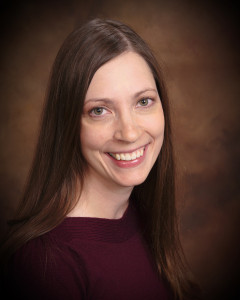 Kate Untiedt | Katherine.Untiedt@va.gov
Kate Untiedt | Katherine.Untiedt@va.gov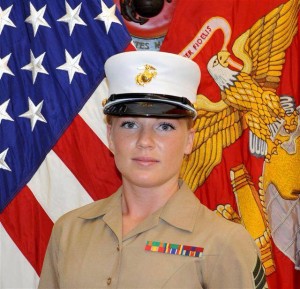 Jordan Robinson | jlrobi03@syr.edu
Jordan Robinson | jlrobi03@syr.edu
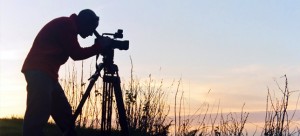

 Dave Gaulin (A&S 2002, MSSc, 2007) served on active duty for 13 years, flying the C-17 Globemaster III. He is now a Major and pilot in the Air National Guard and works in the telecommunications industry. Follow him @davegaulin
Dave Gaulin (A&S 2002, MSSc, 2007) served on active duty for 13 years, flying the C-17 Globemaster III. He is now a Major and pilot in the Air National Guard and works in the telecommunications industry. Follow him @davegaulin 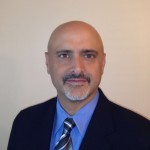 Steve Medeiros is a 2002 Graduate of the MSSc Program and served 28 years in the United States Marine Corps, retiring as a Colonel in 2013. Steve served in a variety of operational and staff assignments and his final assignment was the Commander, Marine Depot Maintenance Command (Albany, GA/Barstow, CA). He is currently the Lead Logistics Engineer for Wyle Laboratories in Stafford, VA.
Steve Medeiros is a 2002 Graduate of the MSSc Program and served 28 years in the United States Marine Corps, retiring as a Colonel in 2013. Steve served in a variety of operational and staff assignments and his final assignment was the Commander, Marine Depot Maintenance Command (Albany, GA/Barstow, CA). He is currently the Lead Logistics Engineer for Wyle Laboratories in Stafford, VA.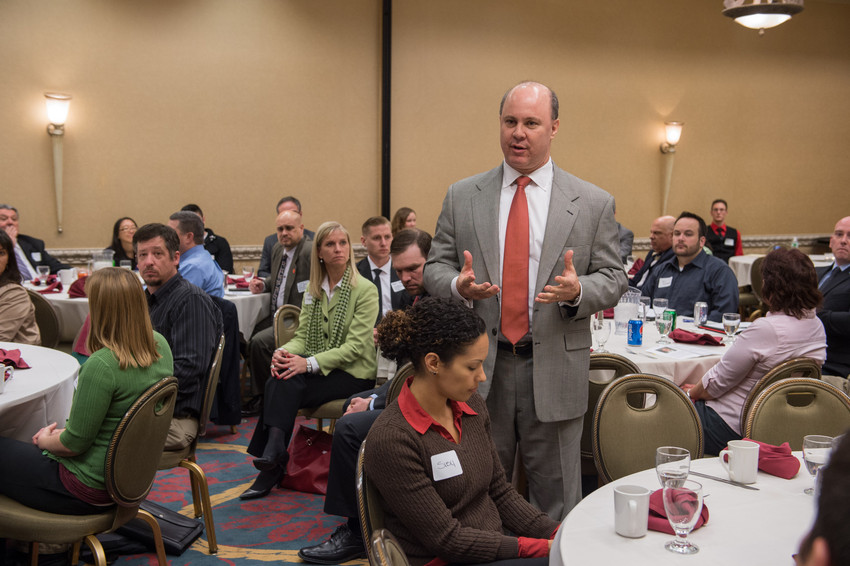
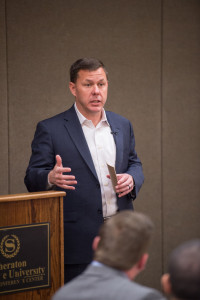 “Veterans bring a distinct character and a set of experiences and credentials that they need to know that they bring because it’s a difficult transition from the military to civilian life. So, if they are able to say that here’s the characteristics, values, experiences, and leadership that I bring to the organization then there’s value no matter what.” – Larry Iwanski, Executive Director, EY.
“Veterans bring a distinct character and a set of experiences and credentials that they need to know that they bring because it’s a difficult transition from the military to civilian life. So, if they are able to say that here’s the characteristics, values, experiences, and leadership that I bring to the organization then there’s value no matter what.” – Larry Iwanski, Executive Director, EY.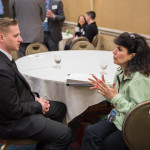 “The value veterans bring to a job in a non-military organization is based on skills and experiences that aren’t taught anywhere else. It’s absorbed during their time in the military. That should always be remembered.” – James Noonan, Program Manager, IBM.
“The value veterans bring to a job in a non-military organization is based on skills and experiences that aren’t taught anywhere else. It’s absorbed during their time in the military. That should always be remembered.” – James Noonan, Program Manager, IBM.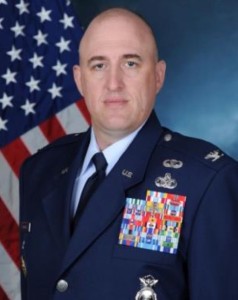 Colonel Erik K. Rundquist is Chief of Security Forces, Headquarters, Air Combat Command. In this position, he is responsible for security, law enforcement, antiterrorism, force protection and integrated defense across the Major Command. Colonel Rundquist was born at Whiteman Air Force Base, Missouri and received a regular commission upon graduation from the United States Air Force Academy in May 1991. He has served in various duty positions to include group commander, squadron commander, MAJCOM division chief, joint staff officer, operations officer, and ground combat instructor. He has deployed on several contingencies to include supporting the United Nations Protection Force in the Balkans, Operations ALLIED FORCE and SHINING HOPE in Albania and Kosovo, DETERMINED RESPONSE (USS Cole) in Yemen, ENDURING FREEDOM in Kyrgyzstan and Afghanistan, and IRAQI FREEDOM where he conducted an operational combat jump into Bashur, Iraq with the 173rd Airborne Brigade. He commanded security forces at Tallil, Iraq, was the J7 for the Combined Joint Special Operations Air Component Command at Balad, Iraq, and commanded the 455th Expeditionary Mission Support Group and Joint Task Force 1/455 at Bagram and Parwan Province, Afghanistan.
Colonel Erik K. Rundquist is Chief of Security Forces, Headquarters, Air Combat Command. In this position, he is responsible for security, law enforcement, antiterrorism, force protection and integrated defense across the Major Command. Colonel Rundquist was born at Whiteman Air Force Base, Missouri and received a regular commission upon graduation from the United States Air Force Academy in May 1991. He has served in various duty positions to include group commander, squadron commander, MAJCOM division chief, joint staff officer, operations officer, and ground combat instructor. He has deployed on several contingencies to include supporting the United Nations Protection Force in the Balkans, Operations ALLIED FORCE and SHINING HOPE in Albania and Kosovo, DETERMINED RESPONSE (USS Cole) in Yemen, ENDURING FREEDOM in Kyrgyzstan and Afghanistan, and IRAQI FREEDOM where he conducted an operational combat jump into Bashur, Iraq with the 173rd Airborne Brigade. He commanded security forces at Tallil, Iraq, was the J7 for the Combined Joint Special Operations Air Component Command at Balad, Iraq, and commanded the 455th Expeditionary Mission Support Group and Joint Task Force 1/455 at Bagram and Parwan Province, Afghanistan.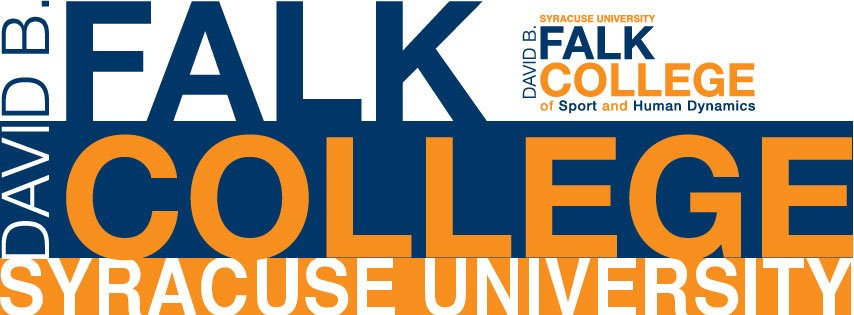
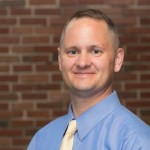
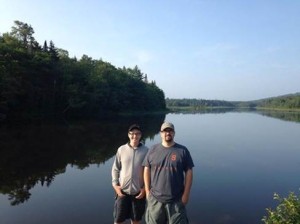 Mike Ross is a native of West Virginia and has been married for 17 years with four wonderful kids. He worked for his undergraduate alma mater in West Virginia for over a decade recruiting students domestically and internationally. Last year, he accepted a position with the Rescue Mission Alliance of Syracuse as the program manager of their Binghamton New York facility. On a personal note Mike enjoys cycling, backpacking, and kayaking as well as homebrewing and binge-watching TV series on Netflix.
Mike Ross is a native of West Virginia and has been married for 17 years with four wonderful kids. He worked for his undergraduate alma mater in West Virginia for over a decade recruiting students domestically and internationally. Last year, he accepted a position with the Rescue Mission Alliance of Syracuse as the program manager of their Binghamton New York facility. On a personal note Mike enjoys cycling, backpacking, and kayaking as well as homebrewing and binge-watching TV series on Netflix.